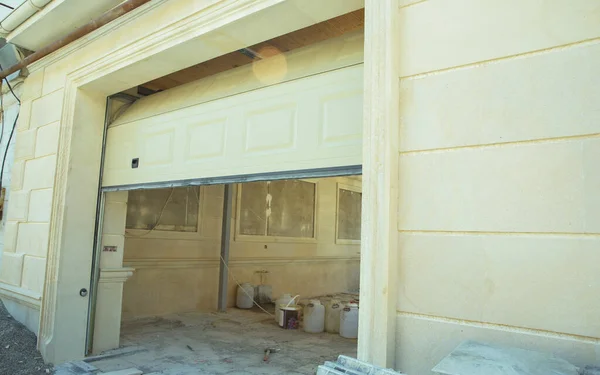When your garage door makes strange noises, it’s important to listen carefully and find out what the sound is telling you. Rattling and creaking can often indicate loose nuts or bolts that need to be tightened or lubricated.
If the sound is banging or crashing, your garage door may be unbalanced and requires a professional repair. Do not attempt to work on springs yourself, as they are under high tension and can cause severe injury. Professional garage door repairs, choose Team Garage Door Repair in Phoenix. Quick service, knowledgeable personnel, and affordable prices guarantee your satisfaction. Give us a call now!
1. Rollers
This high-pitched noise occurs when the metal rollers in your garage door come into contact with the tracks. These rollers are typically made from rust-resistant materials that require little maintenance, but they can become noisy over time. This is often caused by a lack of lubrication, which can lead to jerky or uneven movements from the rollers.
A rattling sound can also be a sign of loose hardware or misaligned tracks. Over time, the nuts, bolts and screws holding the track sections together can loosen from regular movement. If you hear a rattling noise when the garage door moves, it’s important to tighten these components or call in a professional for repairs to avoid damage and potential injury. If this isn’t fixed quickly, it can also lead to metal-on-metal contact that creates a grinding sound during opening and closing.
2. Hinges
Most garage doors use their hinges thousands of times a year and they are under a lot of weight, pressure and stress. This means that over time they will wear out. Signs that your hinges are wearing out include a squeak when the door opens and closes, metal shavings or gray dust around the pin of the hinge and if the hinges look bent in any way.
Hinges are available in many different types, sizes and thicknesses (gauge). It is important that you install the correct hinges as these will ensure the correct spacing between panel sections and that the garage door perfectly fits between the track and framework.
Most residential garage doors come with thin 18-gauge hinges, which are prone to breaking and compromise the strength of the door. You can upgrade to a thicker, heavy duty 14-gauge hinge to prevent this from happening.
3. Springs
Most garage doors make low rumbling sounds as part of their normal operation, but when you hear strange high-pitched squealing or scraping noises, it’s something to take seriously. This sound indicates that the metal moving parts of the door are rubbing together, which is usually a simple fix. A rattling noise could also mean your rollers need additional lubrication.
If your garage door has torsion springs, look for markings on the stationary cone or winding drum to identify which end is the right wind. Then, deduct 20 coils from the total length of the spring to get an accurate measurement of its unwound length. This helps ensure the springs are matched to give you maximum cycle life. This is especially important if you switch from an extension to a torsion system.
4. Insulation Strip
The most common cause of a squeaking garage door is a worn or missing insulation strip. This seal is essential to prevent drafts and cold air from coming in around the bottom of your door, and it’s also important to protect against moisture and dust.
The best way to test your door’s weather stripping is to have someone stand outside of the house at night and shine a flashlight all around the doors and windows. If you see any light leaking through anywhere, it’s time to replace your weather stripping.
A clinking sound could mean that your torsion springs are rubbing together, which would require a professional to fix. A squeaking noise may also be caused by a lack of lubrication on the exterior frame and weather stripping between sections. This is easily fixed with some silicone-based lubricant.
5. Motor
While all garage doors make some basic noise while they open and close, strange sounds can indicate that something is wrong. Some of these noises may signal that the door needs to be lubricated, while others could mean the need for some major repairs.
Rattling noises can occur when loose nuts and bolts cause metal parts to rattle against each other as the garage door moves up and down. This problem can often be solved by retightening the loose hardware or adding lubrication to prevent metal-on-metal contact.
Other garage door noises, such as a loud bang or a scraping sound, can be a sign that the safety reversing sensors (also called photo eyes) are misaligned or have been damaged. These sensors are responsible for detecting objects in the door’s path as it closes, and they can only work properly if they are in good condition.
